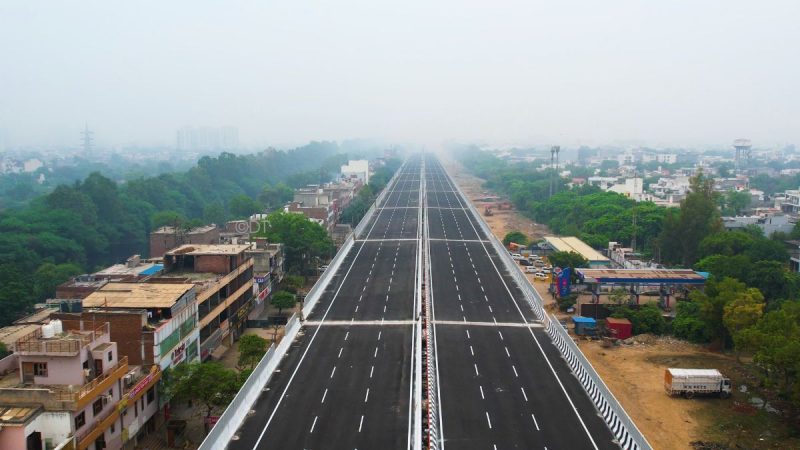India is witnessing a transformative shift in its infrastructure landscape, and at the forefront of this revolution is the Delhi-Mumbai Expressway. This mega-project, India’s longest expressway, once completed, will be a game-changer for the country’s economy, logistics, and connectivity.
Delhi-Mumbai Expressway Becomes India’s Longest
Even in its partially opened state, the expressway has already made history. With a current operational length of 619 kilometres, it has secured the title of India’s longest expressway, surpassing all existing ones. The Ministry of Road Transport and Highways (MoRTH) has confirmed that the total length of the project is 1,386 kilometres, a colossal undertaking that is being executed at a rapid pace.
The government’s vision of a robust expressway network is evident in the PM Gatishakti Framework, which aims to enhance logistics efficiency. The Delhi-Mumbai Expressway is a cornerstone of this initiative. Minister Nitin Gadkari has emphasised the importance of such infrastructure in driving economic growth and creating new opportunities.
A World-Class Facility
The expressway, impressive in length, is designed as a world-class facility. Builders are constructing it as an eight-lane access-controlled highway with provisions for future expansion to twelve lanes.
This ensures that it can handle increasing traffic volumes and remain future-proof. Additionally, the expressway will be equipped with state-of-the-art amenities, including charging stations for electric vehicles, helipads, trauma centres, and dedicated lanes for EVs.
A unique feature of the Delhi-Mumbai Expressway is its commitment to environmental sustainability. The project includes animal overpasses and wildlife crossings, making it one of the world’s few highways to prioritise ecological concerns. The expressway is expected to lower greenhouse gas emissions by reducing travel time and fuel consumption.
However, the project has not been without its challenges. Construction has involved acquiring vast tracts of land, which has raised concerns about displacement and environmental impact. Balancing development with ecological preservation has been a delicate task.
Despite these hurdles, the potential benefits of the Delhi-Mumbai Expressway are immense. It will significantly reduce travel time between the two economic powerhouses of the country, boosting trade, tourism, and commerce. The expressway will also open up new opportunities for industrial development along its corridor, creating jobs and stimulating economic growth in the region.
Cover Image Courtesy: @DetoxTravellerr/X (Formerly, Twitter)
For more such snackable content, interesting discoveries and the latest updates on food, travel and experiences in your city, download the Curly Tales App. Download HERE.

